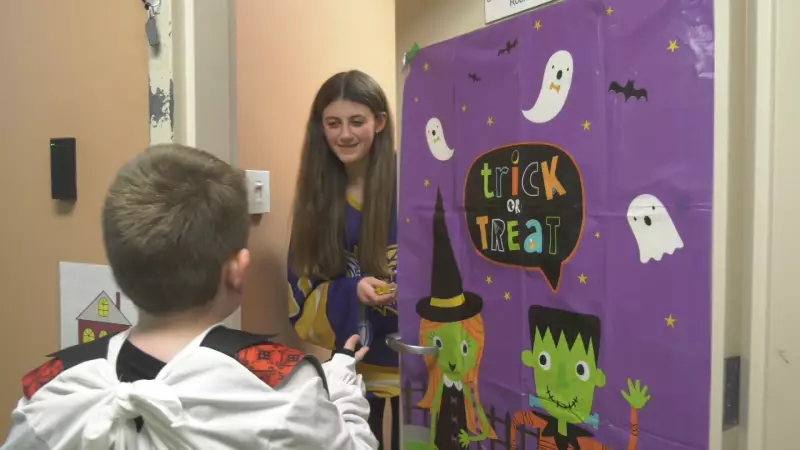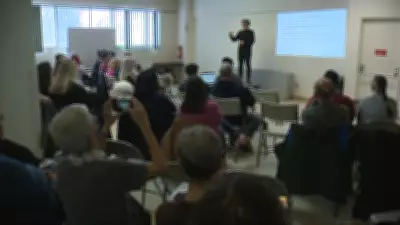
As Halloween approaches, many families face unique challenges when it comes to traditional trick-or-treating. For neurodiverse children, the combination of unfamiliar costumes, social interactions, and unexpected sensory experiences can be overwhelming. However, one Edmonton occupational therapist has developed an innovative solution that's changing the game for local families.
A Safe Space for Practice
Megan Goudreau, an Edmonton-based occupational therapist, recognized the need for neurodiverse children to practice Halloween traditions in a controlled, supportive environment. Her solution? A comprehensive trick-or-treating simulation that allows children to rehearse every aspect of the Halloween experience before the big night.
The program transforms a therapy space into a Halloween wonderland, complete with decorated doors, friendly volunteers, and all the typical elements of neighborhood trick-or-treating. Children can practice everything from knocking on doors and saying "trick-or-treat" to handling unexpected situations that might arise during the actual event.
Building Confidence Through Repetition
For children with autism, sensory processing disorders, or other neurodiverse conditions, the predictability and repetition of the simulation provides crucial comfort. "We can practice the same scenario multiple times," Goudreau explains. "If a child needs to knock on the same door ten times to feel comfortable, we can do that."
The program addresses common challenges neurodiverse children face during Halloween, including:
- Wearing unfamiliar costumes and dealing with sensory triggers
- Navigating social interactions with strangers
- Managing expectations around receiving candy
- Handling unexpected noises, lights, and decorations
- Practicing safety skills while walking in the dark
Real Results for Edmonton Families
Parents participating in the program report transformative outcomes. Children who previously found Halloween overwhelming are now approaching the holiday with excitement rather than anxiety. The simulation allows families to identify potential challenges beforehand and develop strategies to address them.
One parent shared how the practice sessions helped their child understand the social script of trick-or-treating, reducing meltdowns and increasing participation. Another noted that their child, who typically struggles with costume textures, was able to find a comfortable alternative through the trial-and-error process.
Beyond Halloween Skills
While the immediate goal is Halloween success, Goudreau emphasizes that the skills learned extend far beyond October 31st. "The social interactions, the confidence building, the ability to handle unexpected situations—these are life skills that transfer to many other areas," she notes.
The program's success has sparked interest from other therapy centers and schools across Alberta, with many expressing interest in implementing similar initiatives to support neurodiverse children in their communities.
As Halloween night approaches, Edmonton's neurodiverse children and their families are feeling more prepared than ever, thanks to this innovative approach that turns potential anxiety into achievable adventure.





